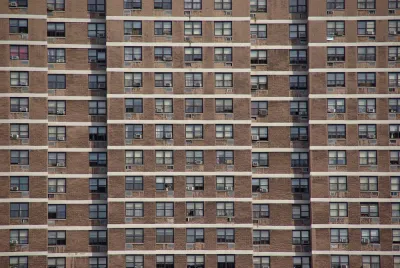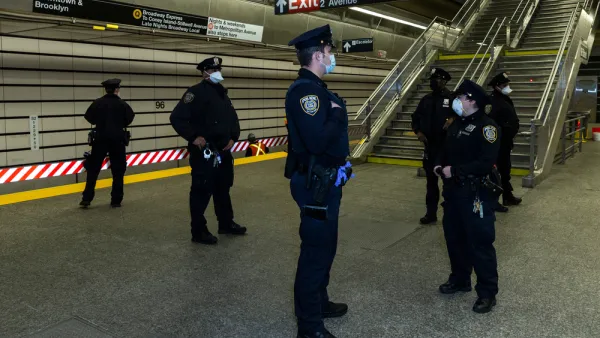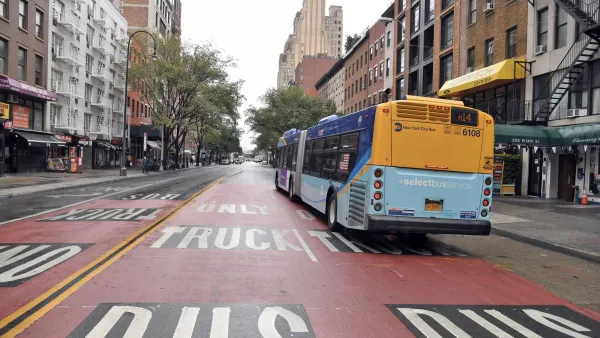Conceived as a stop-gap measure, New York City's cluster site program essentially pays landlords to house homeless people. Now, Mayor de Blasio wants to convert some of those sites directly into affordable units.

Legal obligations require New York to house some of its homeless population, resulting in so-called "cluster sites" in private apartment buildings, with the city footing the bill. The shelter program has been controversial, attracting criticism for its costs, hazards to tenants, and general unsustainability.
However, Nikita Stewart writes, "Under Mayor Bill de Blasio, the city's reliance on the cluster sites has grown along with the rise in homelessness, which has arguably been the biggest failure of his tenure."
Under De Blasio's new plan, announced in December, "the city would use public financing to help nonprofits buy roughly a third of the apartments currently used for the homeless, and then convert the apartments into affordable units, helping the mayor fulfill two goals: lowering homelessness and adding to the city’s affordable housing stock." If landlords refuse to cooperate, eminent domain will apparently be an option.
In the article, Stewart discusses how de Blasio's policy decisions may have contributed to the problem, especially his early reluctance to open new homeless shelters. At the same time, a 2015 report found that cluster site landlords often overcharge the city with impunity. "The lucrative circumstances sometimes led landlords to drive out residents who were not homeless just so they could collect the larger payments from the city."
FULL STORY: De Blasio Seeks to Turn Homeless ‘Cluster Sites’ Into Affordable Housing

Analysis: Cybertruck Fatality Rate Far Exceeds That of Ford Pinto
The Tesla Cybertruck was recalled seven times last year.

National Parks Layoffs Will Cause Communities to Lose Billions
Thousands of essential park workers were laid off this week, just before the busy spring break season.

Retro-silient?: America’s First “Eco-burb,” The Woodlands Turns 50
A master-planned community north of Houston offers lessons on green infrastructure and resilient design, but falls short of its founder’s lofty affordability and walkability goals.

Test News Post 1
This is a summary

Analysis: Cybertruck Fatality Rate Far Exceeds That of Ford Pinto
The Tesla Cybertruck was recalled seven times last year.

Test News Headline 46
Test for the image on the front page.
Urban Design for Planners 1: Software Tools
This six-course series explores essential urban design concepts using open source software and equips planners with the tools they need to participate fully in the urban design process.
Planning for Universal Design
Learn the tools for implementing Universal Design in planning regulations.
EMC Planning Group, Inc.
Planetizen
Planetizen
Mpact (formerly Rail~Volution)
Great Falls Development Authority, Inc.
HUDs Office of Policy Development and Research
NYU Wagner Graduate School of Public Service



























